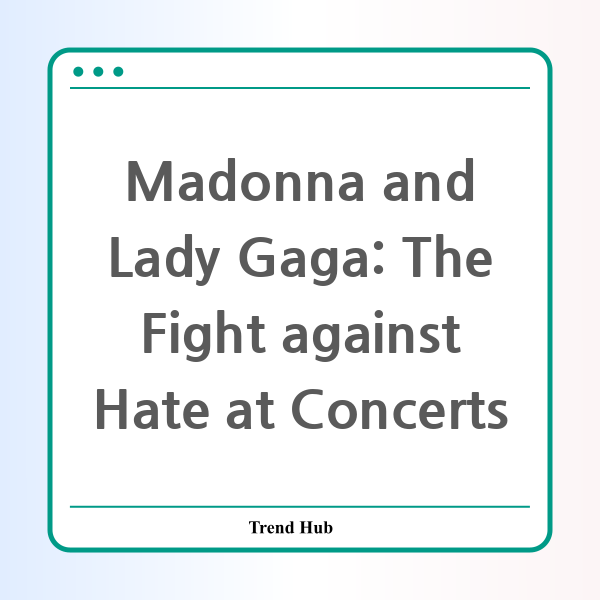* This website participates in the Amazon Affiliate Program and earns from qualifying purchases.

As Lady Gaga took the stage in Rio de Janeiro’s iconic Copacabana beach, over two million people gathered to witness a moment that had been ten years in the making. The excitement was palpable, but lurking behind the scenes was a chilling threat: a terrorist plot aimed at the very heart of the concert’s vibrant LGBTQ+ crowd. This incident sheds light on a critical dialogue surrounding celebrity culture, safety at large events, and the pervasive nature of hate speech in today’s society.
Brazilian authorities were able to thwart a dangerous plan that included bomb attacks targeting attendees of Lady Gaga's concert, which was free to the public but aimed at revitalizing the Rio economy. This operation, dubbed "Operation Fake Monster," led to the arrest of several suspects who allegedly intended to recruit and radicalize young people online. The suspects were identified as posing as Gaga’s loyal fans known as "Little Monsters," utilizing this affiliation to spread hate and incite violence.
Authorities revealed that the plan was not merely reckless; it had sinister objectives. The attackers sought notoriety on social media through a violent act aimed primarily at the LGBTQ+ community, reflecting a disturbing trend where individuals exploit public gatherings to propagate ideologies rooted in hate. The gravity of the threats escalated further with the discovery of a third individual's involvement, reportedly planning to commit a violent act under the guise of a satanic ritual.
In light of these threats, police deployed around 5,000 officers and utilized advanced security measures, including drones and facial recognition technology, ensuring stringent safety for concert-goers. It’s a reminder of the heightened risks associated with large public events, particularly those that celebrate diversity and inclusion, such as Lady Gaga's performances, which often champion LGBTQ+ rights.
In a heartfelt address to her audience, Gaga expressed immense gratitude to her fans, emphasizing the pride she felt in performing for Brazil. This concert marked her return and was significant both culturally and socially, promoting messages of love and acceptance in an increasingly polarized world. Even amid the chaos, fans like Dani Morera Trettin expressed appreciation for how law enforcement handled the situation without causing panic, which could have overshadowed the concert's positive energy.
Gaga’s advocacy for the LGBTQ+ community has long been evident in her music and public appearances. She’s consistently used her platform to fight against discrimination and violence, such as during her rally at World Pride NYC. Her acknowledgment of the struggles faced by marginalized communities resonates deeply, especially as social climates shift towards conservativism in many parts of the world.
This incident opens up crucial discussions about the responsibilities of public figures in combating hate and the role of authorities in ensuring safety at celebrations of diversity. With the rise of extremist ideologies, it becomes imperative for both artists and law enforcement to work in tandem to create secure environments that allow for freedom of expression and joy.
As we reflect on the events of Lady Gaga's concert in Rio, it's essential to advocate for continued vigilance against hate, radicalization, and violence in all forms. In an age where social media can amplify messages of hate as easily as it can spread love, we must remain committed to fostering environments where diversity is celebrated and protected, ensuring that music and art can flourish without fear.
* This website participates in the Amazon Affiliate Program and earns from qualifying purchases.